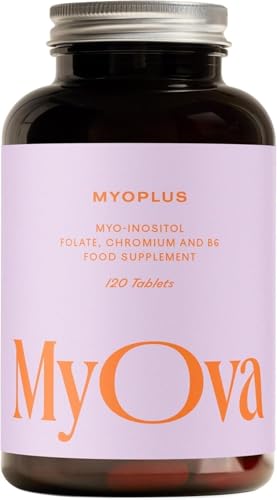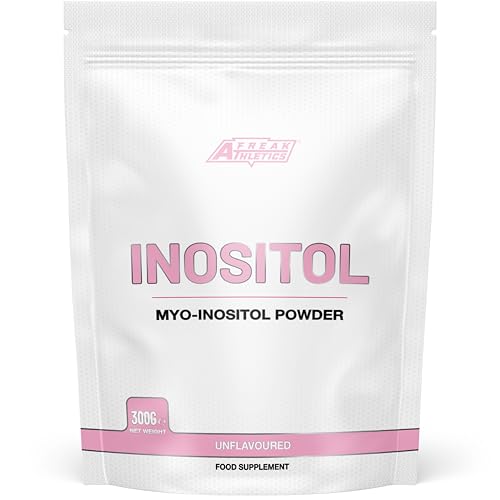Understanding Inositol: What It Is and How It Works
What Is Inositol?
Inositol is a type of sugar that plays a crucial role in cellular processes within our bodies. While it is sometimes referred to as a B-vitamin, it is actually a carbohydrate and can be found in various forms, with myo-inositol being the most common. Inositol supports neurotransmitter function and is vital for insulin signaling, which means it aids in the regulation of blood sugar levels. Essentially, our bodies utilise inositol to communicate effectively at a cellular level, impacting everything from mood regulation to fat metabolism.
How Does Inositol Work?
Inositol works by influencing the pathways of neurotransmitters, chemical messengers in our brain. It plays a significant role in the function of serotonin, which is often referred to as the ‘happy hormone’. This interaction is why inositol is being studied for its potential benefits related to mental health. Beyond mood and mental wellness, inositol’s influence on insulin sensitivity positions it as a beneficial compound for those managing conditions like PCOS, where insulin resistance is a concern.
Benefits of Inositol: A Deep Dive into Its Uses
Mental Health Benefits
Many individuals turn to inositol for its potential mental health benefits. Research suggests that it may help alleviate symptoms of anxiety and depression by enhancing serotonin function in the brain. For someone experiencing these challenges, incorporating inositol could be a natural way to support emotional wellbeing.
Support for PCOS and Hormonal Balance
For those facing Polycystic Ovary Syndrome (PCOS), inositol has shown promising results in managing symptoms. It can help regulate menstrual cycles and improve insulin sensitivity, making it easier to manage weight. If you’re navigating the complexities of hormone regulation, inositol could serve as a supportive ally.
General Wellness and Metabolic Health
Inositol also plays a role in various aspects of metabolic health. It can support liver function and fat metabolism, which is crucial for maintaining a healthy weight. By incorporating inositol into your dietary habits, you’re not only focusing on one specific area of wellness but potentially supporting your overall health.
Choosing the Right Inositol Supplement: Key Factors to Consider
Types of Inositol Supplements
There are primarily two forms of inositol supplements available: myo-inositol and D-chiro-inositol, often found in a combination called the ‘inositol ratio’. Myo-inositol is widely researched and commonly used for its benefits, especially for PCOS and mental health. When selecting a supplement, consider which type aligns with your health goals.
Dosage Recommendations
Dosage can vary based on individual needs and the specific health issues being addressed. Common dosages for myo-inositol are typically around 1,000 to 4,000 mg per day, but it’s crucial to consult with a healthcare professional for personalised advice. This ensures you choose a dosage that is not only effective but safe for you.
Quality and Purity of Supplements
It’s essential to opt for high-quality supplements from reputable brands. Look for products that list their ingredients clearly and are free of unnecessary fillers or additives. Checking for third-party testing can also give you peace of mind that what you’re taking is pure and accurately labelled.
How to Incorporate Inositol into Your Daily Routine
Finding the Best Time to Take Inositol
Integrating inositol into your daily routine can be straightforward. Many people choose to take it in the morning or with meals, but what’s most important is consistency. By establishing a habit, such as taking your supplement at the same time each day, you can maximise adherence to your health routine.
Combining Inositol with Other Supplements
Inositol works well alongside other supplements, especially those targeting hormonal balance or mental health, such as magnesium or vitamin D. However, if you’re considering adding new supplements to your regimen, it’s prudent to consult a healthcare professional to avoid any potential interactions.
Monitoring Your Progress
To gauge the effectiveness of inositol in your routine, keep track of any changes in your symptoms or overall health. This could include mood improvements, changes in menstrual regularity, or other health markers. By monitoring your progress, you can better assess if inositol is the right choice for you.
FAQs About Inositol: Common Questions Answered
Can Everyone Take Inositol?
Inositol is generally safe for most people, but it’s always wise to consult a healthcare provider especially if you’re pregnant, nursing, or on medication, to ensure it’s suitable for your individual circumstances.
Are There Any Side Effects?
Inositol is well-tolerated by most individuals with few reported side effects. Some may experience mild gastrointestinal issues, such as upset stomach, but these are usually transient. Monitoring your body’s response when starting any new supplement can help you establish a comfortable dosage.
How Long Until I See Results?
The time it takes to experience the benefits of inositol can vary from person to person. For some, changes may be noticeable within weeks, while for others, it might take longer to achieve the desired effects. Consistent use is key, so patience can be important as your body adjusts to the supplement.






















